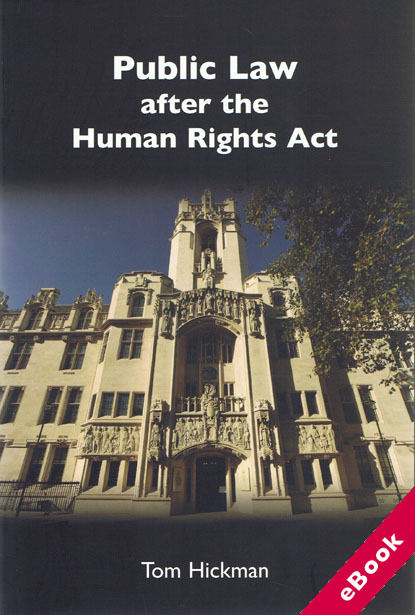We are now closed for the Christmas and New Year period, returning on Monday 5th January 2026. Orders placed during this time will be processed upon our return on 5th January.

The device(s) you use to access the eBook content must be authorized with an Adobe ID before you download the product otherwise it will fail to register correctly.
For further information see https://www.wildy.com/ebook-formats
Once the order is confirmed an automated e-mail will be sent to you to allow you to download the eBook.
All eBooks are supplied firm sale and cannot be returned. If you believe there is a fault with your eBook then contact us on ebooks@wildy.com and we will help in resolving the issue. This does not affect your statutory rights.
What is the Human Rights Act? What is its relationship to the common law? Is there a need to invent new doctrines of public law to accommodate the Act? Will it lead to the extinction of established doctrines? What should be the effect of the Act on the structure of public law as a whole?
Ten years after the HRA came into effect and, remarkably, these questions remain unanswered. Public Law after the Human Rights proposes an understanding of the HRA's constitutional status and its effect on public law that answers each of them. Unlike other books on the HRA, the book looks beyond the Act itself to its position in public law as a whole.
The book explains and articulates in novel ways the relationship between the Act and administrative and constitutional law. It suggests that the HRA builds on the common law constitution both theoretically and in terms of the mechanics of how public law works. The book draws together a practical understanding of public law, and a close attention to the case law, with a broader historical and theoretical approach to the subject area.
The discussion focuses on core topics in modern public law, (1) the constitutional status of the HRA, (2) its effect on central doctrines of public law such as reasonableness, proportionality and process review (each of which have a separate chapter), (3) the structure of public law after the human rights act, (4) derogation and emergencies, and (5) the right of access to a court.